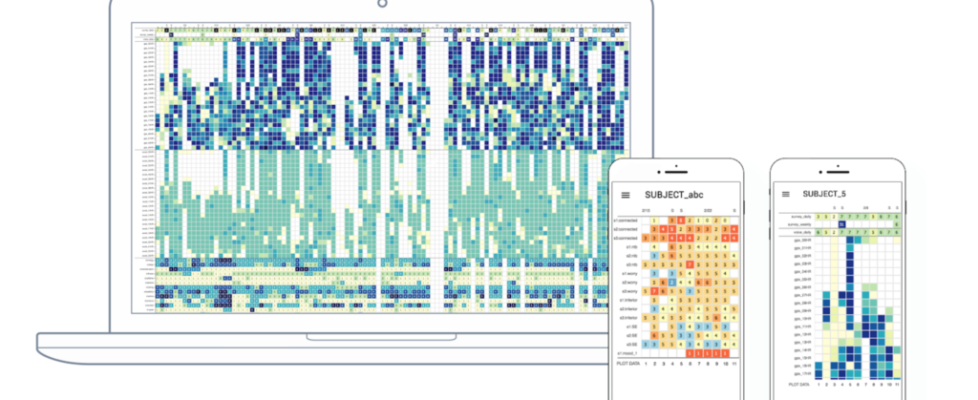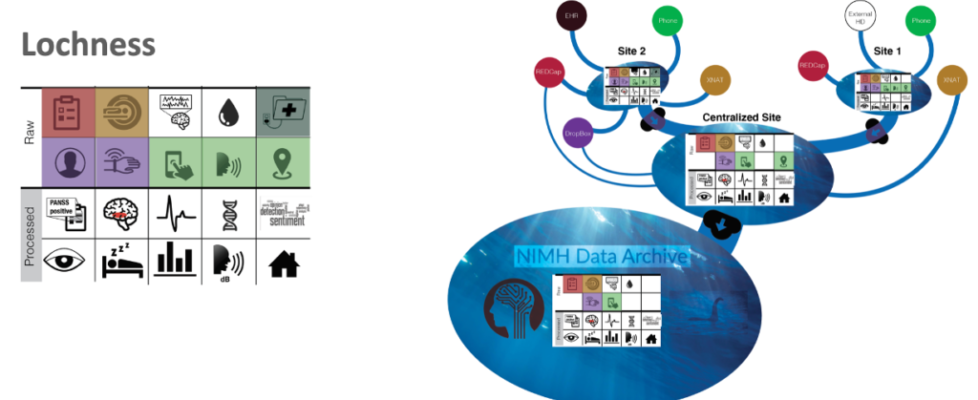DPdash
Deep phenotyping dashboard: DPdash is a Deep/Digital Phenotyping Dashboard designed to manage and visualize multiple data streams coming in continuously over extended periods of time in individuals.
More
Deep phenotyping dashboard: DPdash is a Deep/Digital Phenotyping Dashboard designed to manage and visualize multiple data streams coming in continuously over extended periods of time in individuals.
More
Lochness: Lochness provides a single command line tool (daemon) to periodically poll and download data from various web services into a local directory. Out of the box there is support for pulling data from a multitude of data sources including Beiwe, XNAT, REDCap, Dropbox, external hard drives, and more.
More
Research on affective disorders, such as bipolar disorder, and on psychotic disorders is hampered by a lack of basic understanding of the course of dynamic circuit properties that might underlie fluctuations in mood and cognition.Bipolar and psychotic disorders at its core are unstable clinical conditions: at its extremes, it can result in periods of profound changes in mood and cognition (i.e., mania, major depression, and psychosis). And yet, remarkably little has been done to understand the basic mechanisms underlying the fluctuating course common to these individuals. We hope to better understand and characterize the natural course of changes in mood and cognition and associated environmental variables in individuals with severe affective and psychotic disorders using mobile behavioral technology. We believe that this will further enable advances in our understanding of how these disorders develop, paving the way for the development and evaluation of new treatment strategies.
The goal of this supplemental project was to capture temporally dense behavioral recordings using smartphones, wearable devices, and audiovisual recordings from individuals with OCD receiving DBS and being studied using continuous intracranial recordings (using the MedTronic PC+S device) and clinical assessment as part of the parent BRAIN Initiative grant.

The scientific motivation for longitudinal study of individuals with mental illness has increasingly become an imperative, if we are to translate biological insights into discoveries that benefit individual patients. For studies intended to reveal differences between patients and healthy individuals at a group level, characterizing patients during periods of profound changes in mental status is a sensible approach, since it maximizes biological signal while minimizing the need to keep track of patients over time.
More